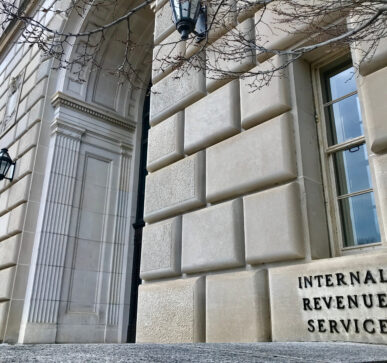Taxpayers have the right to appeal the IRS. Understanding how to appeal the IRS is critical and Taxpayers ought to consider retaining representation in order to diminish the risks of litigation. Only attorneys, certified public accountants or enrolled agents are allowed to represent a taxpayer before Appeals. An appeals office is the only level of appeal within the IRS. Conferences with appeals office personnel may be conducted in person, through correspondence, or by telephone with a taxpayer or its authorized representative.
Taxpayers have the right to appeal the IRS collection actions to the IRS Office of Appeals
Appeals is separate and independent from the IRS Examination and Collection functions that make tax assessments and initiate collection actions. Their mission is to resolve tax controversies without litigation, on a basis which is fair and impartial to both the Government and a taxpayer and in a manner that will enhance voluntary compliance.
IRS Office of Appeals
Appeals prohibits certain communications with the IRS Collection office or other IRS offices, such as discussions regarding the strength or weakness of a taxpayer’s case. Publication 594 outlines the two main options for a taxpayer to appeal the IRS:
Collection Due Process or Collection: the purpose of this process is to have Appeals review the collection actions that were taken or have been proposed for a taxpayer. After Appeals has made their determination and a taxpayer does not agree, a taxpayer can go to court to appeal the Appeals’ Collection Due Process determination. A taxpayer can request a Collection Due Process hearing if a taxpayer has received a:
- Notice of Federal Tax Lien Filing and Your Right to a Hearing
- Final Notice—Notice of Intent to Levy and Notice of Your Right to a Hearing
- Notice of Jeopardy Levy and Right of Appeal
- Notice of Levy on Your State Tax Refund—Notice of Your Right to a Hearing
- Notice of Levy and of Your Right to a Hearing
Collection Appeals Program: under this program, if a taxpayer disagrees with an IRS employee’s decision regarding any levy, seizure, or Notice of Federal Tax Lien filing and wants to appeal it, a taxpayer can ask to have a conference with the employee’s manager. If the IRS seizes a taxpayer’s house, car, or other property in order to sell a taxpayer’s interest in the property to apply the proceeds to a taxpayer’s tax debt, a taxpayer must make the request within ten business days after the Notice of Seizure is given to a taxpayer or left at a taxpayer’s home or business. There is no deadline to request a manager conference when a levy is served for other types of property (such as wages or bank accounts) or a levy or seizure or Notice of Federal Tax Lien filing is proposed. The collection action may go forward if a conference is not requested within a reasonable time period. If a taxpayer disagrees with the manager’s decision, a taxpayer may request the IRS Office of Appeals to review a taxpayer’s case under the Collection Appeals Program.
A taxpayer can pursue the Collection Appeal Program:
- Before or after IRS files a Notice of Federal Tax Lien
- Before or after IRS seizes (“levy”) a taxpayer’s property
- After the IRS rejects, terminates, or proposes to terminate a Taxpayer’s Installment Agreement
Taxpayers could potentially reduce their tax liability if they appeal the IRS
The IRS states that in order for a taxpayer to be best prepared to appeal a tax dispute, a taxpayer ought to believe that:
- IRS made an incorrect decision based on a misinterpretation of the law, check the publications discussing your issue(s)
- IRS didn’t properly apply the law due to a misunderstanding of the facts, be prepared to clarify and support your position
- IRS is taking inappropriate collection action against you or your offer in compromise was denied, and you disagree with that decision, be prepared to clarify, and support your position
- Facts used by the IRS are incorrect, then you should have organized records or other evidence to support your position
Best to have representation if you want to appeal the IRS
The IRS appeal process is long and challenging. Taxpayers that have representation stand the best chance of having their IRS appeal settled in a satisfactory manner and reduce their risk.
Are you a taxpayer with a tax dispute?
Is the IRS taking an inappropriate collection action against you?
Who is your professional tax advisor? ©





